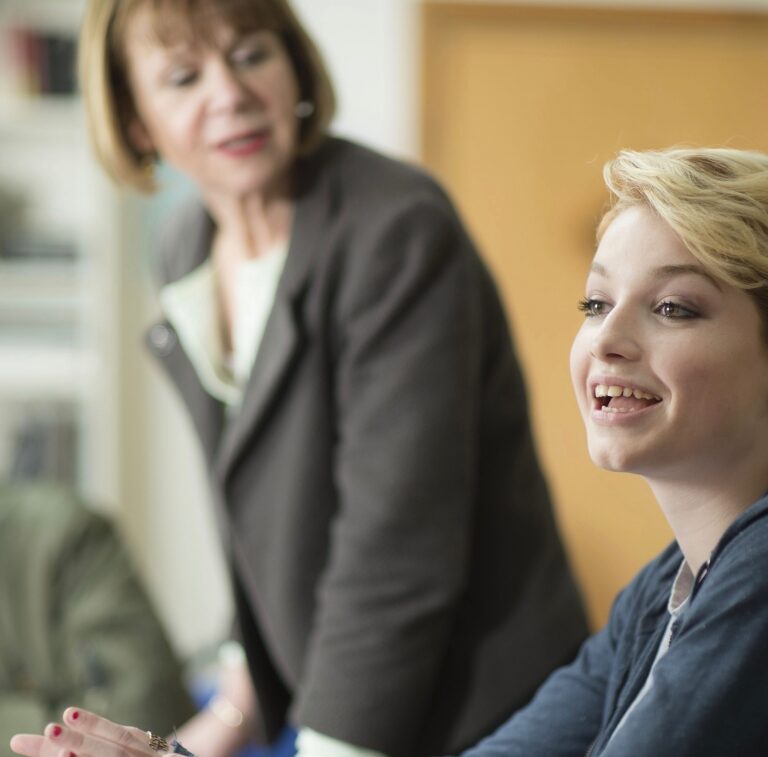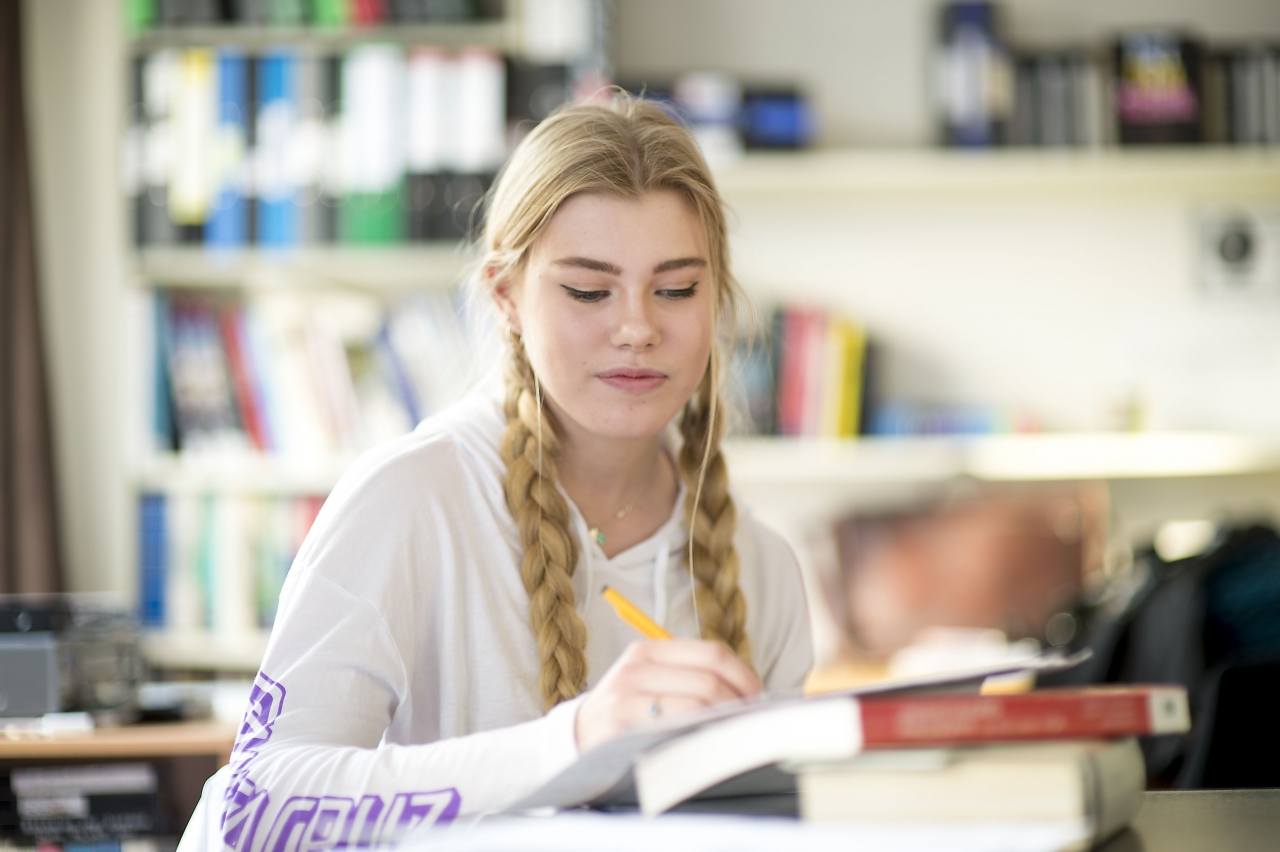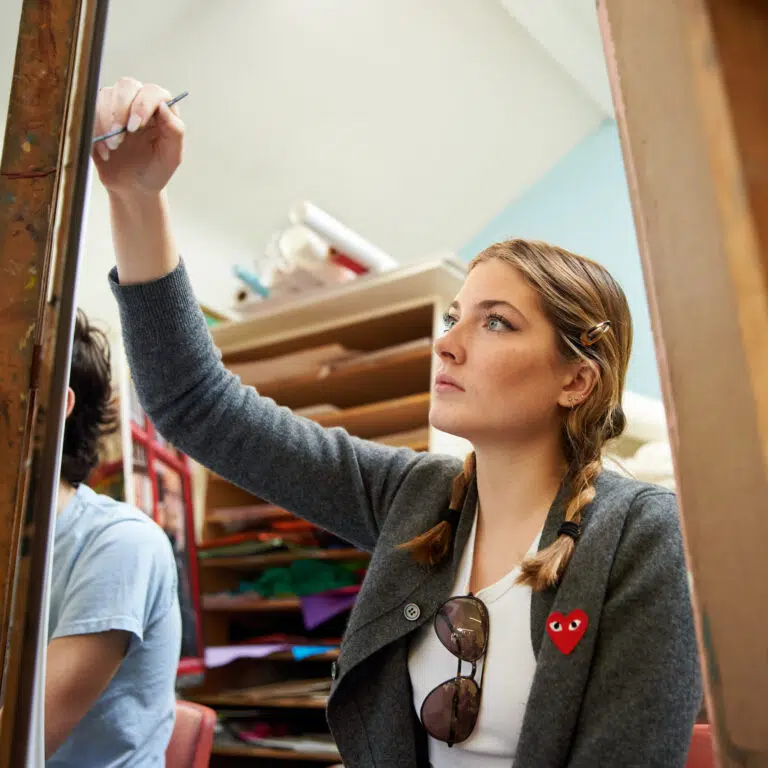WHAT WILL I LEARN?
The course at Fine Arts College covers human biology and diseases, and the structure, function, evolution, distribution, ecology, conservation and taxonomy of living organisms. It will give students an exciting insight into the world of contemporary biology, and practical skills are integrated throughout the course. For example, students will use microscopes to view their own cells, carry out tests for biochemicals in food, and compare the distribution of plant species in contrasting areas of grassland. This combination of academic challenge and practical focus makes the course varied and thorough.. Students will also learn to apply their knowledge, investigating and solving problems in a range of contexts.
The Edexcel syllabus was chosen as that most suited to students at Fine Arts. Compared to more traditional courses, its topic-based organisation emphasises the real-world relevance of the subjects and better reflects the type of teaching that is increasingly used in universities. In addition to the core scientific concepts, students address the social and ethical context of biological research. The biology course content is divided into eight teaching topics. Each topic is based around a real-world example and the biological principles that underlie it.
LOWER SIXTH
Topic 1 – Lifestyle, Health and Risk
This topic focuses on the circulatory system and the importance of lifestyle choices to health. The role of diet and other lifestyle is considered with reference to cardiovascular disease (CVD). The structures and functions of carbohydrates and lipids are also studied within this context, as are ideas about correlation, causation, and the concept of risks to health.
Topic 2 – Genes and Health
The context of this topic is the genetic disease Cystic Fibrosis and includes the properties of cell membranes and transport of materials across them; genetics (DNA structure and replication, monohybrid inheritance); protein synthesis and enzymes. The topic addresses social and ethical issues surrounding screening for genetic conditions.
Topic 3 – The Voice of the Genome
This topic follows the development of multicellular organisms from single cells to complex individuals. Cell structure, cell division, fertilisation, the roles of stem cells, gene expression, cell differentiation and tissue organisation are all considered, as is the role of the genotype, epigenetics and the effect of environment on phenotype.
Topic 4 – Biodiversity and Natural Resources
This focuses on biodiversity and the wealth of natural resources used by humans. We look at how this diversity has come about through adaptation via evolution by natural selection. Concerns for disappearing biodiversity and loss natural resources highlight the need for biologists to identify and classify species. The topic has sections on uses of plant products and the use of natural chemicals as medicines The relationship of plant anatomy to function and the structure of cellulose and starch are studied. The topic ends with the issue of sustainability and the conservation of endangered species.
UPPER SIXTH
Topic 5 – On the Wild Side
This topic provides students with an understanding of how ecosystems work, and the process of photosynthesis that underpins most ecosystems. It continues by looking at the evidence for climate change and its effects on organisms, addressing how climate change could lead to extinction of species or evolution by natural selection. This topic should enable students to appreciate how scientific understanding can make us aware of our responsibilities as stewards of the environment.
Topic 6 – Immunity, Infection and Forensics
This topic begins with how forensic pathologists use a variety of analytical techniques to determine identity and the time and cause of death of organisms, including humans. It then considers how bacteria and viruses use a variety of routes into their hosts and how hosts have evolved barriers and immune responses to combat infections. This topic also investigates the evolutionary battles between invading pathogens and their hosts.
Topic 7 – Run For Your Life
This centres on the physiological adaptations that enable animals and humans (e.g. sports people) to undertake strenuous exercise. The topic includes the biochemistry of respiration and looks at the links between homeostasis, muscle physiology and performance. It ends by looking at how medical technology is enabling more people to participate in sport and raises the issue of whether the use of performance-enhancing substances by athletes is safe and justified.
Topic 8 – Grey Matter
This topic concentrates on the nervous system. Brain imaging and the functions of brain structures are considered. We study how we see and the way that these signals are transmitted by nerve cells. Response of plants to light are also addressed. The topic also demonstrates how an understanding of brain function is relevant to responses to stimuli, and the development of vision and learning. Imbalances in brain chemicals may result in conditions such as Parkinson’s disease, which can be treated with suitable drugs. Students discuss the ethical issues raised by the Human Genome Project and the risks and benefits of using genetically modified organisms.
GCSE or IGCSE Biology are a requirement. Chemistry GCSE or iGCSE is preferred.
ASSESSMENT
Assessment involves a total of six hours of examinations in three examination papers taken at the end of the two-year course. A wide range of question types includes multiple choice, short answer and extended response questions. There is an opportunity to demonstrate your knowledge of both theory and practical skills through the examinations. Students will be assessed separately for the Science Practical Endorsement. The Endorsement will not contribute to the overall grade for this qualification, but the result will be recorded on the student’s certificate.
|
The Natural Environment and Species Survival (Paper 1)
|
Energy Exercise and Co-ordination (Paper 2)
|
General and Practical Applications in Biology (Paper 3)
|
| 2 Hours | 2 Hours | 2 Hours |
| 33% of total A Level | 33% of total A Level | 33% of total A Level |
Practical Endorsement in Biology (Internally assessed and externally moderated by Pearson).
The Practical Endorsement requires 12 practical activities to be completed during the 2 years of the A-level. The assessment of practical skills is a compulsory requirement of the course of study for the A level qualification in Biology. It will appear on all students’ certificates as a separately reported result, alongside the overall grade for the qualification.
Examination board: Edexcel
9BN0: Biology A (Salters Nuffield)




